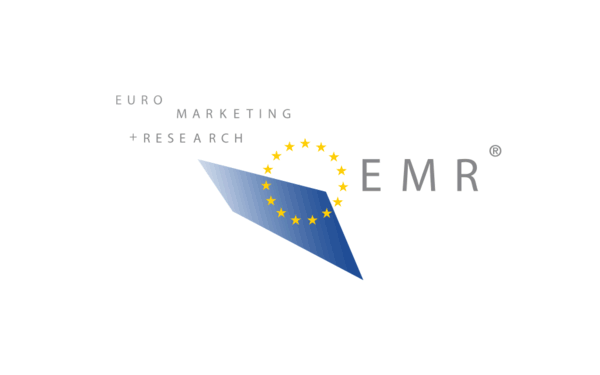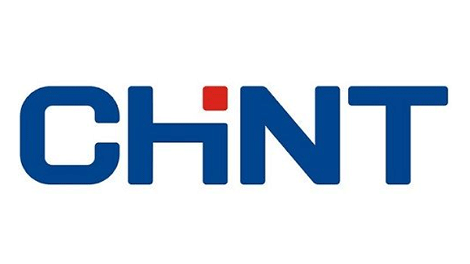CHINT – Gender Equality Statement
As a global leader in smart energy solutions, CHINT has always been committed to achieving sustainable development.
Since joining the United Nations Global Compact in 2021, CHINT Global, a CHINT company, has always believed that promoting gender equality is crucial for achieving the 17 Sustainable Development Goals. To this end, CHINT Global joined the United Nations Global Compact’s Forward Faster Initiative and Target Gender Equality projects in 2023, promising to further achieve gender equality by 2030.

Ms. Sanda Ojiambo, Assistant Secretary-General and CEO of the United Nations Global Compact, said: “Although we have reached the midpoint of the 2023 Agenda for Sustainable Development, work to achieve gender equality and economic empowerment as set out in Sustainable Development Goal 5 is still not on track. At the current rate, it will take 169 years for women to achieve full economic empowerment and participation and 131 years to close the global gender gap. Businesses are people-oriented and innovative and should play a leading role in achieving gender equality.With the mission of ” Light up boundless possibilities in E-life” and the core values of ” Customer Centricity, Openness and Inclusive, Innovation and Entrepreneurship“, CHINT Global is ready to provide rich opportunities and support for female employees to create a diverse and open corporate environment and a talent development strategy of gender equality. To this end, we have launched several measures:
PART.01
Promoting Employee Diversity and Opposing Gender Discrimination
CHINT Global values a diverse and inclusive work environment and provides equal opportunities for all employees, regardless of gender. Employee diversity has long been a key factor in ensuring the success of our business, and the first step in building a diverse workforce is to attract diverse talent. CHINT Global has established a “Zero Discrimination” employee recruitment and promotion mechanism, creating a non-discriminatory work environment and making every effort to recognise every hardworking employee.
PART.02
Promoting female leadership at all levels
We have a long history of women in key leadership positions across CHINT Global’s businesses, and we are proud of that. We are committed to providing more opportunities and platforms for women to excel. CHINT Global will continue to cultivate female leaders, continuously create a corporate culture and promote the sustainable development of women.
PART.03
Care for employees and their families
CHINT Global has developed an employee care programme to protect and promote the well-being of all employees. We will continue to innovate, create a safe and enjoyable working environment, and continuously improve our policies in areas such as maternity and paternity leave, flexible work arrangements, care for breastfeeding employees, and regular medical examinations.
PART.04
Creating an open, inclusive, and secure company culture
As a global company operating in more than 140 countries and territories, we believe it is important to address the cultural and social pressures faced by women in particular. Adherence to internal policies such as equal pay for equal work and zero tolerance of violence and sexual harassment is the foundation of our internal management. Through rigorous internal monitoring and ongoing training and awareness-raising, we are committed to creating a working environment where all employees feel safe and their work is fairly valued.In addition, we have established an anonymous complaints channel (email: esg@chint.com) that receives cases of alleged discrimination, violence and sexual harassment, determines whether the complaints are valid, and, if so, investigates and handles them internally. Cases may also be referred to local legal authorities for further actions if necessary.
PART.05
Sharing our knowledge and experience
CHINT has been included in the “Top Employers in China” list published by the Top Employers Institute for two consecutive years. We believe it is our responsibility to share our knowledge and experience in talent development strategies to promote progress in our industry and society as a whole. We also actively work with the United Nations Global Compact organisation to contribute to sustainable development goals through various activities, high-level roundtables and publications.
Looking to the future, CHINT Global is committed to ensuring that every employee, regardless of gender, race, religion, ethnicity or any other characteristic, can enjoy the unlimited opportunities that electricity offers in the new global green energy landscape.
SourceCHINT Global
EMR Analysis
More information on CHINT: See the full profile on EMR Executive Services
More information on Nan Cunhui (Chairman, Zhengtai Group + Chairman, CHINT Group): See the full profile on EMR Executive Services
More information on Lily Zhang (Executive President, CHINT Electric + President and Chief Executive Officer, CHINT Global): See the full profile on EMR Executive Services
More information on the United Nations: https://www.un.org/ + Peace, dignity and equality on a healthy planet.
The United Nations is an international organization founded in 1945. Currently made up of 193 Member States, the UN and its work are guided by the purposes and principles contained in its founding Charter.
The UN has evolved over the years to keep pace with a rapidly changing world.
But one thing has stayed the same: it remains the one place on Earth where all the world’s nations can gather together, discuss common problems, and find shared solutions that benefit all of humanity.
The main parts of the UN structure are the General Assembly, the
Security Council, the Economic and Social Council, the Trusteeship Council, the International Court of Justice, and the UN Secretariat. All were established in 1945 when the UN was founded.
More information on António Guterres (Secretary-General, United Nations): https://www.un.org/sg/en/content/sg/biography
More information on the United Nations Sustainable Development Goals (SDG):
- United Nations Global Compact (UNGC): https://www.unglobalcompact.org + The world’s largest corporate sustainability initiative: a call to companies to align strategies in operations with universal principles on human rights, labour, environment and anti corruption, and take actions that advance societal goals.
- At the UN Global Compact, we aim to mobilize a global movement of sustainable companies and stakeholders to create the world we want. That’s our vision.
- To make this happen, the UN Global Compact supports companies to:
- Do business responsibly by aligning their strategies and operations with Ten Principles on human rights, labour, environment and anti-corruption; and
- Take strategic actions to advance broader societal goals, such as the UN Sustainable Development Goals, with an emphasis on collaboration and innovation.
- To make this happen, the UN Global Compact supports companies to:
- United Nations Global Compact 10 Principles:
- Human Rights
- Principle 1: Businesses should support and respect the protection of internationally proclaimed human rights; and
- Principle 2: make sure that they are not complicit in human rights abuses.
- Labour
- Principle 3: Businesses should uphold the freedom of association and the effective recognition of the right to collective bargaining;
- Principle 4: the elimination of all forms of forced and compulsory labour;
- Principle 5: the effective abolition of child labour; and
- Principle 6: the elimination of discrimination in respect of employment and occupation.
- Environment
- Principle 7: Businesses should support a precautionary approach to environmental challenges;
- Principle 8: undertake initiatives to promote greater environmental responsibility; and
- Principle 9: encourage the development and diffusion of environmentally friendly technologies.
- Anti-Corruption
- Principle 10: Businesses should work against corruption in all its forms, including extortion and bribery.
- Human Rights
- The 17 SDGS (Sustainable Development Goals) by 2030:
- Detailed explanation of each of the 17 SDGS: https://www.unglobalcompact.org/sdgs/17-global-goals

More information on Sanda Ojiambo (UN Assistant Secretary-General and CEO of the UN Global Compact, United Nations): https://www.un.org/sg/en/content/profiles/sanda-ojiambo + https://unglobalcompact.org/about/governance/asg-ceo + https://www.linkedin.com/in/sandaojiambo/
EMR Additional Notes:
- ESG (Environmental, Social and Governance):
- Refers to the three key factors when measuring the sustainability and ethical impact of an investment in a business or company. Most socially responsible investors check companies out using ESG criteria to screen investments.
- ESG metrics are not commonly part of mandatory financial reporting, though companies are increasingly making disclosures in their annual report or in a standalone sustainability report.
- There is not a standardized approach to the calculation or presentation of different ESG metrics.
- Environmental: Conservation of the natural world
- Climate change and carbon emissions
- Air and water pollution
- Biodiversity
- Deforestation
- Energy efficiency
- Waste management
- Water scarcity
- …
- Social: Consideration of people & relationships
- Customer satisfaction
- Data protection and privacy
- Gender and diversity
- Employee engagement
- Community relations
- Human rights
- Labor standards
- …
- Governance: Standards for running a company
- Board composition
- Audit committee structure
- Bribery and corruption
- Executive compensation
- Lobbying
- Political contributions
- Whistleblower schemes
- …
- Environmental: Conservation of the natural world
- Criteria are of increasing interest to companies, their investors and other stakeholders. With growing concern about he ethical status of quoted companies, these standards are the central factors that measure the ethical impact and sustainability of investment in a company.
- Consequently, ESG analysis considers how companies serve society and how this impacts their current and future performance.
- CSR (Corporate Social Responsibility):
- Framework or business model that helps a company be socially accountable to itself, its stakeholders, and the public.
- The purpose of CSR is to give back to the community, take part in philanthropic causes, and provide positive social value. Businesses are increasingly turning to CSR to make a difference and build a positive brand around their company.
- CSR tends to target opinion formers – politicians, pressure groups, media. Sustainability targets here the whole value chain – from suppliers to operations to partners to end-consumers.
- CSR vs. ESG:
- CSR is a company’s framework of sustainability plans and responsible cultural influence, whereas ESG is the assessable outcome concerning a company’s overall sustainability performance.
- The major difference between them is that CSR is a business model used by individual companies, while ESG is a criteria that investors use to assess a company and determine if they are worth investing in.


